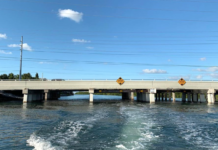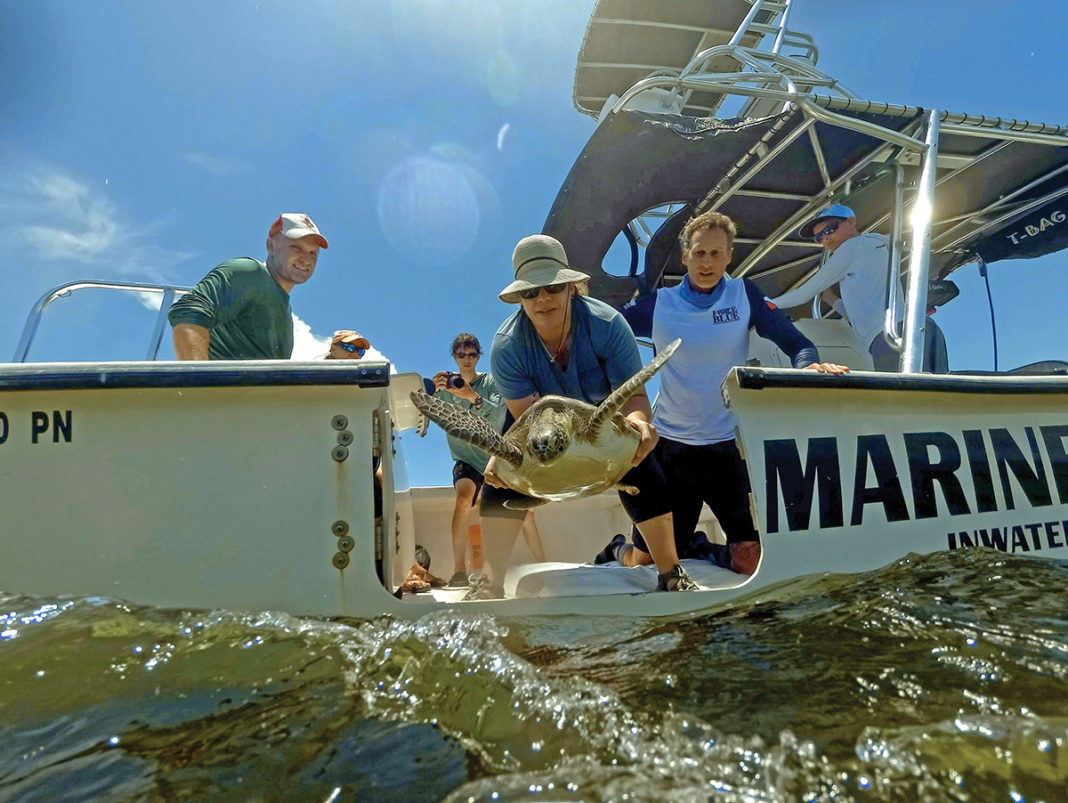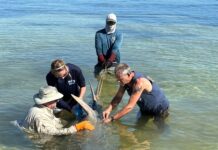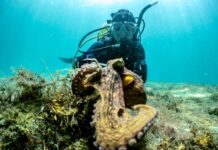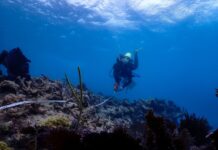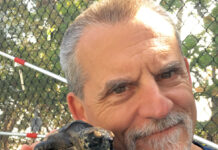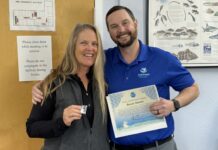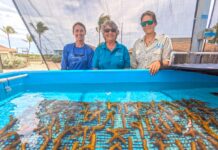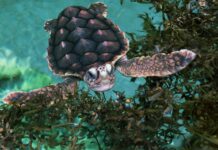In the Florida Keys, most divers enter the water to go after lobster, fish, or maybe just some underwater scenery. But what about diving for … turtles?
Enter the Turtle Hospital’s recently completed Lower Keys green sea turtle assessment. The pilot study is the first of its kind to assess the green sea turtle population in the Keys. Over 10 days in early June, two vessels contracted through Inwater Research Group scouted for turtles in the waters from Big Pine Key to Cudjoe Key. After a sighting, turtles that could reasonably be brought on board were retrieved using nets or divers. Each individual was analyzed with measurements, bloodwork, shell and skin biopsies, and a general health assessment. “The study allowed us to see if the turtles brought to the Turtle Hospital are a true representation of the local population or just a small slice of an otherwise healthy population,” said Turtle Hospital Manager Bette Zirkelbach.
Once data was collected, healthy turtles were released unharmed within a 30-minute window. Of the 24 turtles acquired during the study, three made their way back to the Turtle Hospital in Marathon for further treatment for fibropapillomatosis, a virus affecting worldwide populations of turtles.
Assisting with the day-to-day “turtle wrangling” were divers from Force Blue. Founded in 2016, the organization works with military special operations veterans and combat divers in order to “retool, retrain, and repurpose” them to do marine conservation work. As executive director Jim Ritterhoff described, the group aims to address two seemingly unrelated problems simultaneously: the peril currently facing many marine resources, and the difficulty of returning to civilian life for veterans whose military service has ended. “They come home, and there’s no more mission. You can’t ask these guys to just jump in a cubicle for the rest of their lives. That doesn’t work, because there’s no sense of purpose. We operate in a way that’s very similar to how they operated in the military, but we give them a new positive mission,” Ritterhoff said.
After previous work fighting the coral disease outbreak in South Florida, Force Blue learned that a generous donor was interested in funding another mission. The one contingency? The mission needed to provide aid to turtles. Fortunately, the group had recently been introduced to Zirkelbach and the Turtle Hospital’s work, so discussions for the pilot study began immediately. The final product was a collaborative effort among Force Blue, the Turtle Hospital, Inwater Research Group, and the Florida Atlantic University Harbor Branch.
“The real magic is that the veteran special operations community and the scientific community are coming together and forming strong bonds that transcend any notion of politics,” said Ritterhoff. “In this hyper-partisan environment, it’s a way to get a message across to entirely different audiences.”
After their experience with turtles, Ritterhoff said he hopes the study leads to more work in a similar vein. “These guys are serving something larger than themselves, which is really all they’ve ever done in their military careers. They fight for communities that can’t fight for themselves.”














